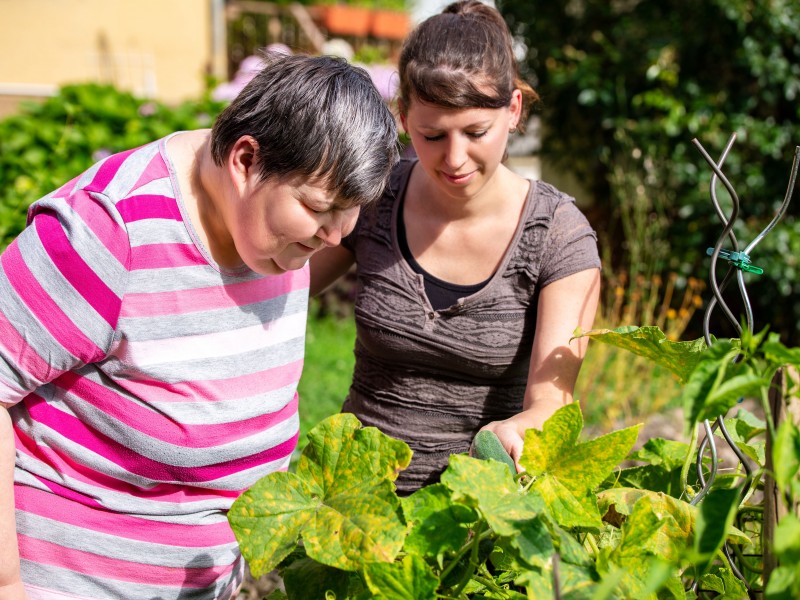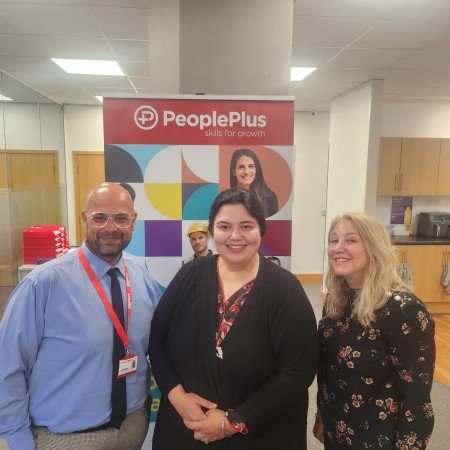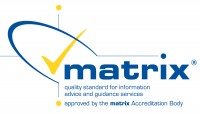A Brand-New Approach to Balancing the Demands of Unpaid Caring, Employment and Life.
Is your organisation Carer aware?
An estimated 1 in 7 people in full-time employment have unpaid caring responsibilities. The highest age bracket of unpaid Carers in employment is 46-65, but becoming a Carer can happen at any age and stage of life.
Every day, 12,000 people join the ranks of family and friends providing 20 or more hours per week of unpaid care work.
Every year, the demands of care lead to over 250,000 people giving up their jobs – the equivalent of 600 resignations per day.
But does being an unpaid Carer have to lead to the loss of earnings, self-esteem, connection, and reward that employment can provide? And should employers simply accept the loss of valued employees?
PeoplePlus believes employees who want to work can be supported to sustain their caring responsibilities and keep the jobs that matter to them - rather than be forced to make a choice.
This is the inspiration behind Be Empowered, a suite of 10 modules developed to enable Carers to balance the demands upon them with their own wellbeing, financial stability and self-esteem.
How can online learning modules help?
Unpaid Carers don’t always find it easy to speak about the impact their role has on their paid employment. Some don't even recognise themselves in the term 'Carer.' Many downplay the role they are fulfilling, even though what they are doing for family, friends and community is an essential service.
Left unchecked, the impact of the unseen demand on the Carer can be overwhelming. Exhaustion, compassion fatigue, guilt and grief take their toll. Isolation can follow when unpaid Carer leads to retreat from the world of outside work and the sense of connection it can provide.
Introducing the option to complete this course to a Carer is a light-touch yet powerful way to signal a desire to help, without adding more pressure or expectation.
Be Empowered can be:
- An active support toolkit in times of crisis.
- A resource to reframe the status quo.
- A protective measure against acute problems developing.
How is the course delivered, and where can I find it?
Be Empowered is a flexible, online programme, exclusively available at www.learningplus.co.uk.
It is accessible on any device, whenever suits, and can be returned to for reflection and support when needed.
The Be Empowered Modules
Building Resilience - How to Bounce Back and Keep Caring
Explore techniques that can be used in difficult situations. Identify how resilience can be built, revealing innate coping mechanisms that can withstand the pressures Carers face.
Carer Guilt & Compassion Fatigue
How and why does compassion fatigue develop? Recognising it and becoming aware of the impact makes dealing with it possible. The content aims to help develop tactics that reduce the risk of exhausting reserves of emotional energy.
Communication with Services (Talking to the Professionals: Part 1)
We look at planning conversations and how to be heard (What is Effective Communication). Gain understanding of types of communication that can be used.
Communication with services (Talking to the Professionals: Part 2)
This module looks at communication barriers and how to talk to professionals to achieve realistic goals. The session also explores how to raise concerns effectively.
Looking after Yourself
Explore how you can look after yourself in your caring role, focusing on Carer wellbeing and practical ways to achieve this.
Planning Hospital Care and Discharge
Module looks at planning hospital admissions and treatments to promote Carer autonomy. Being involved, whether as a patient or a visitor to the person you support, takes focus and understanding aspects of the discharge process can have long-lasting positive benefits.
Setting Boundaries - Building Resilience - How to Say No
The module looks at ways to improve the clarity of roles, and establishing and maintaining health boundaries to give everyone a sense of safety and control.
Technology and Services to Support
Explore services and technologies available that are changing the landscape.
Your Rights as a Caregiver
The Care Act (2014) established in law the rights caregivers can refer to to access support and advice - Policies that can help Carers to feel heard and connected.
For Managers - What you Need to Know and How You Can Help
A module designed to support employers, management teams, and wider team members - wherever the impact of unpaid care could be better understood for the benefit of all.
Information is based on The Care Act (2014) to better support employees with unpaid care responsibilities. In addition to outlining what The Care Act means from an employer perspective, the many benefits of employing and supporting Carers are explored.
Quality and Relevance -
Be Empowered has been developed and created by PeoplePlus Carer support specialists, based on extensive research and input from Carers in the Gloucestershire Carers Hub and surveys at regional and national levels.
Below is starting point - a digest of some things to consider when approaching the subject of unpaid care responsibilities.
First things first - Who is a 'Carer'?
- The term 'Carer' is generally used to describe someone enabling another who may have a short- or long-term health condition, terminal illness, substance misuse, mental ill-health or additional needs.
- Many Carers don’t identify with the term Carer- using the term, 'supporting another' can be much more effective.
- Parent Carers rarely identify with the term and will say ‘I’m just a parent’, similarly couples say, 'But they are my wife/ husband/partner.'
- Language to avoid- 'Loved one' - Some Carers are caring out of a sense of duty and not from an emotional attachment.
- Caring situations don’t always happen overnight, but they can.
- Caring situations can change overtime- increased need/ fluctuating needs/ reduction in needs.
- Caring is not always about supporting someone with their physical care needs.
- Often care is not exclusively 1:1 - the Carer may be part of a network. To not fulfil their 'duty' would mean not only letting the individual down but a wider group.
Speak to a member of the PeoplePlus Wellbeing team today – [email protected], or to buy now go to Be Empowered · LearningPlus















